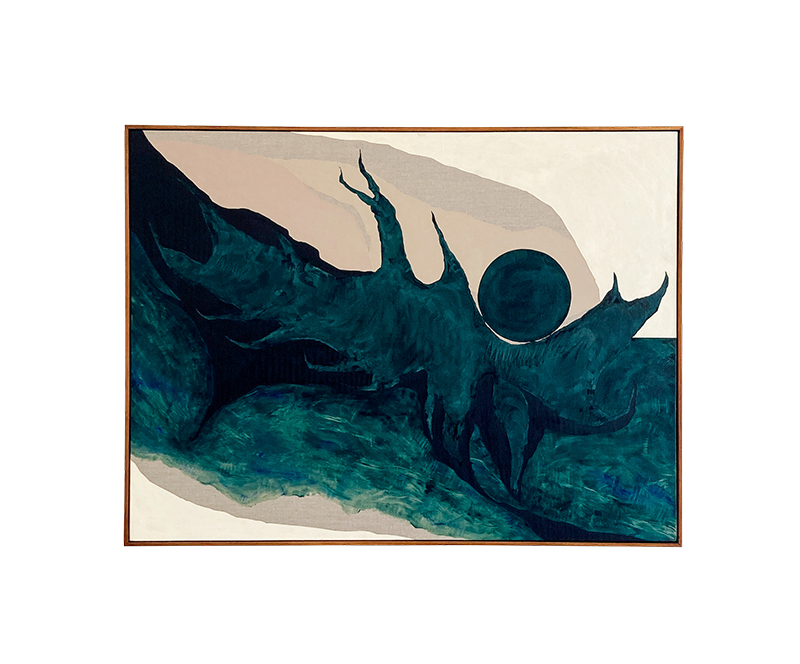“I have no news. I live quietly, I love you and I wait.'“
— Vladimir Mayakovsky, from a letter featured in Love in the Heart of Everything; The Correspondence between Vladimir Mayakovsky & Lili Brik, 1915-1930
Given that I have no particular news, at least none that can yet be explicitly shared (read: a book announcement), here are some dusty thoughts on untranslatability, lexical gaps, and language generally—
Untranslatable words, or lexical gaps, are the opposite of wildly reaching to remember something, the opposite of having the word you need stuck on the tip of your tongue. They are words that could, if they wanted, take sentences or paragraphs or even entire books to translate them, to try and unpick their nuances—I believe they are the words which can never mean the exactly same thing twice, because they settle on each person's tongue so differently. They are: relief and community, humans looking more like themselves, finding comfort in the knowledge that it’s possible to trust a word with one’s depths.
These lexical gaps are also, often, stubborn reminders that we cannot simplify everything, that uncertainty and vagueness and an openness in the interpretation of events are all acceptable and important parts of living, of all communication. We should not have to condense everything down, restrict ourselves or our word-spillage, shortcut the human experience—we do not have to turn away when it takes a little bit longer than normal to explain, and it is alright to run out of paper.
Interlingual translation is in part so important because humans across and between continents are often far more similar than we know or care to admit, and in the thin place of translation can grow a deep desire to communicate—to truly understand. We desperately need language, and what it leaves behind as residues and memory, because human experience cannot be laid out chronologically, because we falter and deviate and crawl back and forth, and because not a single thing can be experienced in the same way by any two people—so we need to call things by different names, and then spend our lifetimes trying to figure out what the other person meant.
This for me begins to get at why some words are so difficult, or impossible, to translate adequately, or why they seem to get ‘lost’ in between languages. It is also perhaps why they seem different, or additionally important—we have to look harder, and consequently we can find pieces of ourselves that we hadn't really noticed before. It naturally leads to thinking about the sheer degree of true human neurodiversity, to consider all of the small differences between people that there have ever been, that ever will be, and how we try to explain those, to record them.
The sheer wonder-problem of words—they shape our reality, often far more than most people ever realise or know, which means that certain cultures consistently bypass entirely the experiences of others. Take, for example, an untranslatable word, or any nuanced, delicate idea that has grown up only with a particular group of people, a particular culture or small pocket—how, if someone from the outside has never heard this term, never deeply felt and grown up with its meaning, can they actually find the experience or feeling inside them? Is it properly possible? It seems to me that if we do not have a word for something, we simply do not feel or experience it—and, if we somehow do, it creates a sense of uneasiness in a person, to live with a nameless feeling or idea. Uneasy until they perhaps fall across the word at some point in time, whereupon they feel relief.
When you try and translate an untranslatable word, what you are actually needing to do is translate an entire culture, and so it can never be the fullest version of a feeling. While translation and other language-related technologies have spread unfathomably, I don't think it will ever be a simple or neat task to explain the shape of one culture to another, nor should it be. Our languages encapsulate and document almost everything—not many human experiences lie outside of language, and even if they do, we are very rarely content to just leave them silent, pointing fingers at categories and adjectives.

ORIGINAL WORK:
The currently available collection of original drawings and paintings.
THIS WEEK I FELL IN LOVE WITH:
Paintings from past exhibitions of Australian artist Hannah Nowlan’s work.
— Mahmoud Darwish, Memory for Forgetfulness: August, Beirut, 1982 (translation Ibrahim Muhawi)
Related:
(Actions for demanding a ceasefire in Palestine.)
(Report Palestinian censorship in publishing.)
(Free zines to read for a Free Palestine.)
Paid supporters of The Sometimes Newsletter receive several additional posts each month, including things like short stories, illustrated essays, and more detailed looks into creative processes. The most recent of these is an essay-list of sorts, Nine Songs from Home, and the next will be an freshly-illustrated, previously archived essay Flying Closer to The Sun.
Nine Songs from Home
The first song, an inability to sleep peacefully. Where, normally and for the most part, a person might expect to fall asleep swiftly, calmly, with some satisfaction for the day which has come before, we find none of the above.
























As a translator, this newsletter made me very happy. You might have heard about the Arabic word قهر (qahr) but if not, here's a great quote about it...
“The dictionary says “anger” but it’s not. It is when you take anger, place it on a low fire, add injustice, oppression, racism, dehumanization to it, and leave it to cook slowly for a century. And then you try to say it but no one hears you. So it sits in your heart. And settles in your cells. And it becomes your genetic imprint. And then moves through generations. And one day, you find yourself unable to breathe. It washes over you and demands to break out of you. You weep. And the cycle repeats.”
Love, and free Palestine.
In summary, languages are fill with AND full of nuances and are NOT black-and-white. Am I correct?